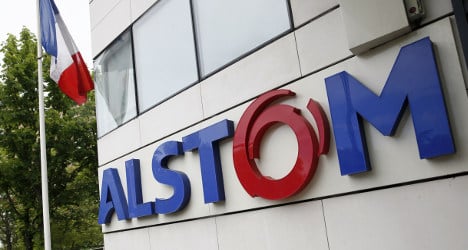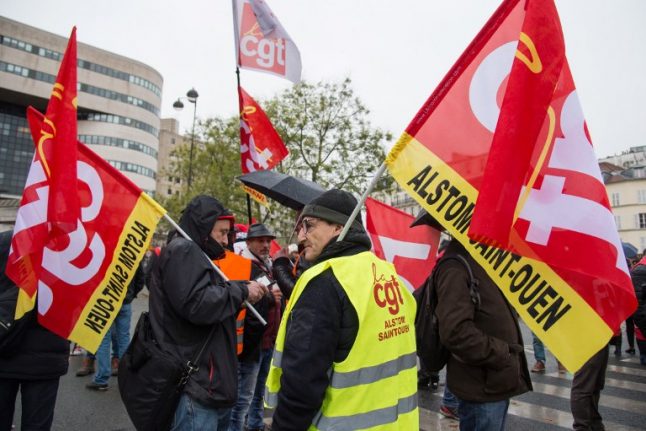Ever since rumours engineering group Alstom, described as a crown jewel of French industry, was in advanced talks with US giant General Electric to sell its energy arm, French ministers have been quick to stress that nothing would happen without their say.
The outspoken new economy minister Arnaud Montebourg, who has a history of squaring up to foreign firms said the government would "do everything necessary to defend the interests of the state”.
Prime Minister Manuel Valls, who scolded Alstom’s chief for keeping them in the dark about the GE bid, said that Alstom was "of national strategic importance" and the government would watch carefully over offers.
At a time when France faces record high unemployment, President François Hollande has been keen to show that he is in control of the situation, demanding to meet both the heads of Siemens and General Electric at the Elysée Palace. Hollande said the state would "inevitably have a say" in the future of the company.
While the move has been criticised by some as a typical French reaction to globalisation and threat of the 'big bad Americans', other analysts say the noises coming from the government are just that: noise.
“The government’s line is to show that it is very protective of French companies,” Sarah Guillou, a senior economist at the French Economic Observatory tells The Local. “It knows the French electorate are sensitive to these kind of issues so it has to make some noise about it.
“The government has a big problem with these kind of takeovers but in the end the shareholders will keep their power and decide which company to sell to,” Guillou added.
Tomasz Michalski, Associate Professor at HEC Paris agreed and pinned the blame for the” “noise” on the country’s fiery economy minister Montebourg.
“Montebourg’s prancing around is ridiculous,” Michalski said. “He is a fig leaf, pretending that the socialist government are doing what a typical French socialist government does, but they aren't.
“If you look at the cooler heads in the government, even François Hollande, who has been very pragmatic, they understand there is a recurring problem with Alstom, because it has suffered from the economic conditions."
Michalski agrees that despite Montebourg’s efforts to play up for the cameras, it will be Alstom’s shareholders who will decide the fate of the company because “they are the ones who stand to gain”.
'Imagine a Chinese company taking over a General Electric'
The intervention of the French government towards the move by General Electric has led to criticism in Anglo quarters that France was resorting to typical Gallic “dirigisme” or state meddling.
However, while those accusations may have been fair when it came to the government blocking the takeover of Daily Motion by Yahoo last year, they are not accurate in this case.
“If a Chinese firm wanted to buy General Electric, then would the US government get involved? I think they would,” said Michalski.
“This is a sensitive issue and it comes at a very bad time for the French government. We can’t say this is typical 'dirigisme'"
Michalski points to the importance of preserving jobs for the government as well as the fact that Alstom makes a lot of engineering equipment used in the nuclear industry that France has a competitive advantage in.
Is Alstom is taken over by Siemens or General Electric, it could hurt Areva – the French energy firm, seen as the global leader in providing nuclear energy.
The French Economic Observatory’s Guillou also believes the French government has reacted no differently to how any other state would, just perhaps a little louder.
“All governments around the world want to get involved when it comes to important deals between two major firms and there is the question of jobs.
“The only thing that France does differently is that it is more in public here, whereas the negotiations are done in secret in other countries.”
General Electric or Siemens
With Siemens confirming on Tuesday that it intends to make a rival bid for Alstom the French public faces the prospect of seeing a national company, once held up as the symbol of the country’s technological prowess, ending up in the hands of a German company or a US one.
Montebourg has made it obvious he would favour Siemens but what about the public and more to the point the French workers?
“Anti-US sentiment has always been strong in France when it comes to business, not because of Americans, but due to the corporate culture, that the French see as being tilted towards shareholders and people can be fired at any time,” Michalski says.
“The French see Germany as having more of a state dominated culture that benefits workers,” he adds.
But in the end, ofcourse, it will be the shareholders who decide.



 Please whitelist us to continue reading.
Please whitelist us to continue reading.
Member comments